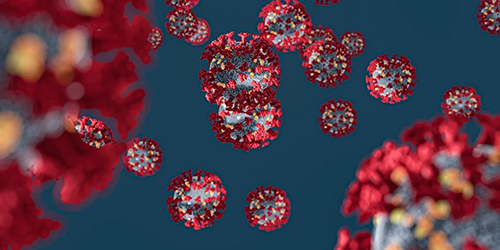Overview Workflows Case study Applications Related Products Featured Services Protocols Q&A Resources
Creative Biolabs has always been professional in the field of complement testing services. With decades of experience in complement research, our scientists can offer a variety of complement C3 functional tests to meet the unique requirements of every client. We are constantly working to improve and integrate our platforms to maintain the excellence of our service quality.
Overview of Complement C3
As the most abundant component of the complement system, complement component 3, often simply called C3, plays a central role in the complement system of vertebrate animals and contributes to innate immunity. C3 and its proteolytic derivatives are pivotal in the activation of the complement system, contributing to three complement routes activation. The C3 convertase complex is formed on the surface of targeted cells, which serves as the site of convergence for all complement activation routes. Complement is able to carry out its effector functions after generating the C3 convertase.
 Fig. 1 The role of complement C3 in three activation pathways.1, 2
Fig. 1 The role of complement C3 in three activation pathways.1, 2
Introduction of Complement C3 Functional Test
Method
The complement C3 functional test is a laboratory test used to evaluate the activity and functionality of C3 in the blood. The test typically involves adding a specific activator or target substance to a blood sample and measuring the resulting activation or consumption of C3.
Analysis
C3 plays a role in opsonization (enhancing phagocytosis), inflammation, and immune complex clearance. Abnormal C3 functional test results may indicate deficiencies or dysfunctions in the complement system, which can be associated with various autoimmune diseases, infections, or genetic disorders.
Workflow of Complement C3 Functional Test
Hemolytic assays

Multiplex Immunoassays

Case Study
Applications
Diagnosis of complement system disorders
Complement C3 functional test helps in the diagnosis of complement-related disorders, such as hereditary angioedema, immune complex diseases, and complement-mediated glomerulonephritis.
Monitoring disease activity
Fluctuations in C3 levels or activity can indicate changes in disease activity, helping clinicians assess response to treatment or disease flare-ups.
Evaluation of immune complex-mediated diseases
Monitoring C3 activity can aid in the diagnosis and management of immune complex-mediated diseases such as lupus nephritis and vasculitis.
Related Products
Featured Services

|

|
|
Total Complement Activity Test
|
C1q-Binding Assays
|
|
Creative Biolabs offers total complement activity test services for our clients. Total complement activity tests include CH50, AH50, and LP50.
|
Creative Biolabs offers high-quality C1q-binding assays for the characterization of therapeutic mAbs.
|
|
Learn more
|
Learn more
|
Protocols
Resources
Creative Biolabs provides a wide range of individual complement functional test services, such as C3 functional tests. Besides, Creative Biolabs support custom-made solutions for the detection of complement-associated diseases for our client. If there are additional questions about our complement tests or would like to consult with the experts at Creative Biolabs, just contact us.
References
-
Han, Juqiang, and Xiang Zhang. "Complement component C3: A novel biomarker participating in the pathogenesis of non-alcoholic fatty liver disease." Frontiers in Medicine 8 (2021): 653293.
-
under Open Access license CC BY 4.0, without modification
Questions & Answer
A: A complement C3 functional test is a laboratory test that measures the ability of the complement system to function properly by measuring the levels of complement C3 in a patient's blood. This test can help identify deficiencies or abnormalities in the complement system that could be associated with certain diseases or conditions.
A: The following are some of the applications of C3 functional tests in research. (1) C3 functional tests can be used to assess the function of the complement system in individuals suspected of having an immunodeficiency disease. (2) C3 functional tests can help researchers study the role of complement system dysregulation in a variety of autoimmune diseases. (3) Studies may use C3 functional tests to investigate the involvement of complement system activation and C3 deposition in inflammatory diseases such as rheumatoid arthritis, lupus, or glomerulonephritis. (4) C3 functional tests can be used to evaluate potential drug or therapeutic interventions that target the complement system. Researchers often combine C3 functional tests with other immune assays and biomarkers to gain a comprehensive understanding of immune system function.
A: The results of a complement C3 functional test can indicate whether the complement system is functioning properly or if there is a deficiency or abnormality in the system. Abnormally low levels of complement C3 may be indicative of certain autoimmune diseases or infections, while high levels may be associated with inflammation or other immune system disorders.
A: The complement C3 functional test typically requires a plasma or serum sample. However, it can also be performed using other biological samples. Please get in touch with us to confirm the sample type that you wish to use. The exact timeframe can depend on several factors, but generally, we aim to provide the results in 1-2 weeks after we've received the sample. This includes the time taken to perform the test itself and analyzing the results.
A: Our test is widely used as a research tool in scientific studies related to immunology and pathology. While it isn't a diagnostic test per se, the results can be indicative in detecting diseases where the immune system plays a significant role, such as autoimmune diseases or bacterial infections.
For Research Use Only.
Related Sections:

 Fig. 1 The role of complement C3 in three activation pathways.1, 2
Fig. 1 The role of complement C3 in three activation pathways.1, 2






